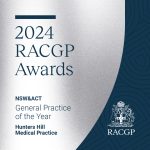Pregnancy Planning and Care
Hunters Hill Medical Practice provides pregnancy planning and care
Planning a baby is an exciting time for prospective parents. Your GP is able to provide ongoing care and support to help you have a healthy pregnancy and give your baby the best start in life.
Planning a pregnancy
Most healthy fertile couples will become pregnant within 12 months of trying, however women over the age of 35 years can take up to twice as long to conceive. If you have been trying to become pregnant for 12 months without success, or if you are over 35 years old and have been trying for 6 months without success, you should arrange for a discussion with your GP. It is ideal that women and their partners visit their GP at around three to six months prior to trying to conceive.
Pre-pregnancy planning: issues to be addressed
Pre-pregnancy planning with your GP will cover a number of different issues. These include:
Your blood group: your “Rhesus” status may affect your pregnancy.
Health checks and tests: review your general health, current medications, herbal supplements etc
Family medical history: family history of genetic disorders or previous children with genetic disorders
Infections and vaccinations: vaccination status such as Rubella and Influenza vaccination
Lifestyle modifications: regular exercise, smoking cessation, decreasing alcohol and caffeine
Nutrition and supplements
For the good health of both you and your baby, it’s important to have a healthy, nutritious diet. Freshly prepared, low fat, high fibre food options are best during pregnancy. Some important supplements for women prior to becoming pregnant and during pregnancy include:
Iron: Iron helps with the production of haemoglobin the molecule that carries Oxygen. It is important that you have sufficient iron levels for you and your baby. This can be especially important if you are a vegetarian or previously had low iron.
Folic Acid: Folic acid supplements are recommended for all women trying to conceive. Taking folic acid for a minimum of three months prior to pregnancy and then throughout pregnancy has been proven to reduce the risk of a baby being born with a neural tube defect such as spina bifida.
Iodine: Iodine is an essential requirement for thyroid hormone production. Thyroid hormones are vital for your developing baby’s brain and nervous system. Many Australian women don’t obtain enough iodine from their diet.
Vitamin D: Vitamin D is important for your health and the health of your developing baby. Women who have reduced sunlight exposure may be at risk of Vitamin D deficiency.
Allied Health Services
Other services co-located at HHMP that may be of interest to you during the pregnancy planning, antenatal and postnatal process include:
- Physiotherapy (including pelvic floor Physio)
- Pathology collection is available on-site
- Molemap skin cancer checks for pre-prgenancy or post-pregnancy skin check
- Endocrinologist especially for gestational diabetes and thyroid issues
- Paediatrician for the care of your child
- Psychologist for issues with falling pregnant and post natal depression
- Dietitian for the management of weight and diabetes
Planning your antenatal care
Antenatal care is the care you receive during your pregnancy. You can discuss with your GP your options for antenatal care and the birth of your baby. This can include specialist obstetric care, birthing in a public hospital, a private hospital or at home. Your GP can discuss your care during your pregnancy and your available birthing options.
Local hospital options include:
- Royal North Shore Hospital (Public)
- Ryde Hospital (Public)
- North Shore Private Hospital (Private)
- Mater Hospital (Private)
- Sydney Adventist Hospital (Private)
If you are planning – start planning!
If you are thinking of becoming pregnant, arrange for a consultation with your GP to discuss any concerns you might have, and get started on the planning process to ensure the good health of you and your baby.






